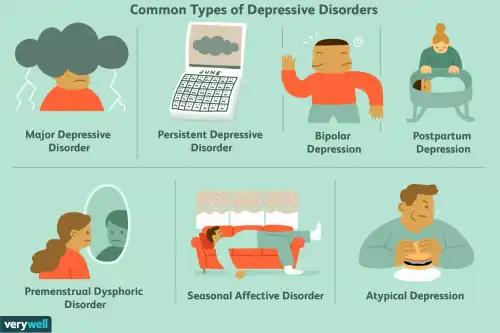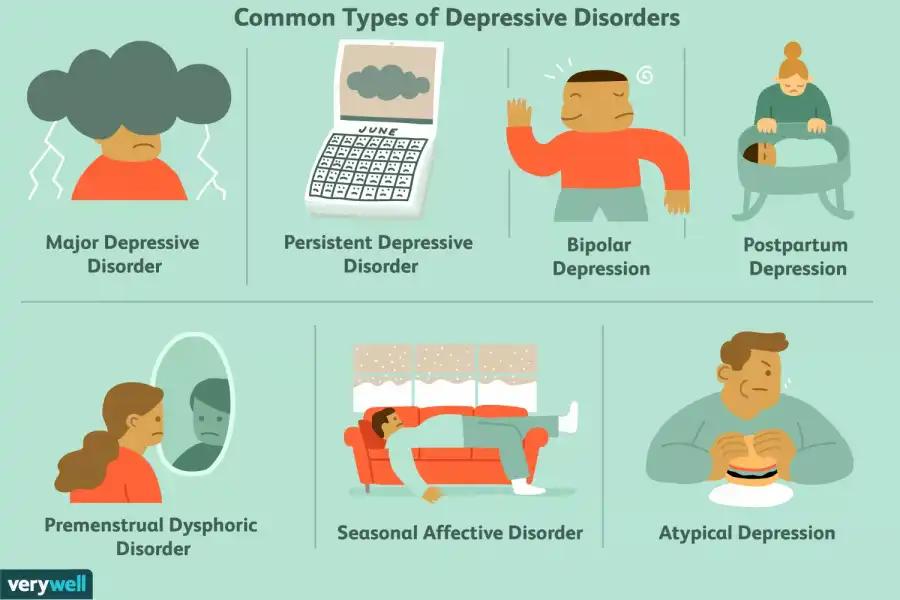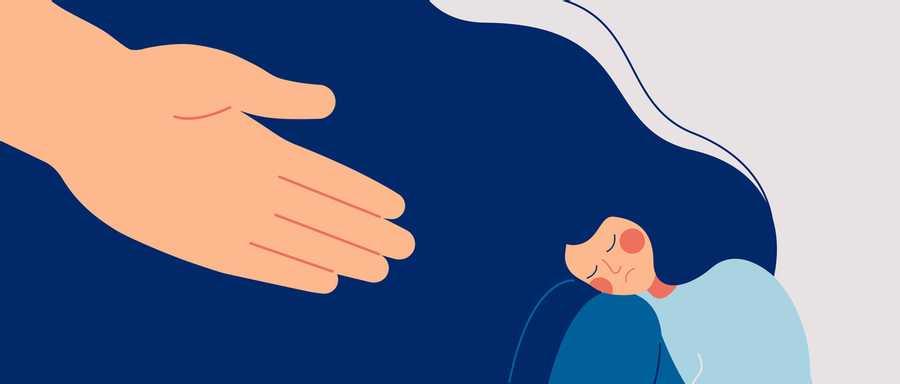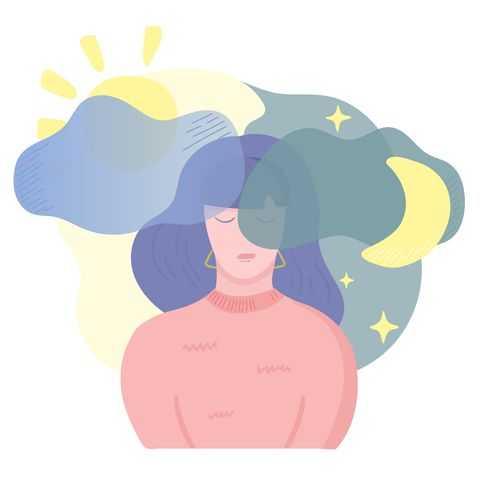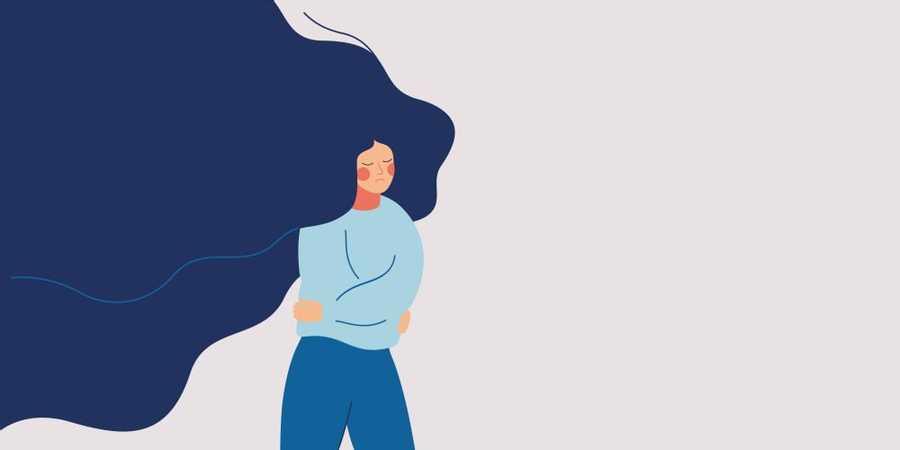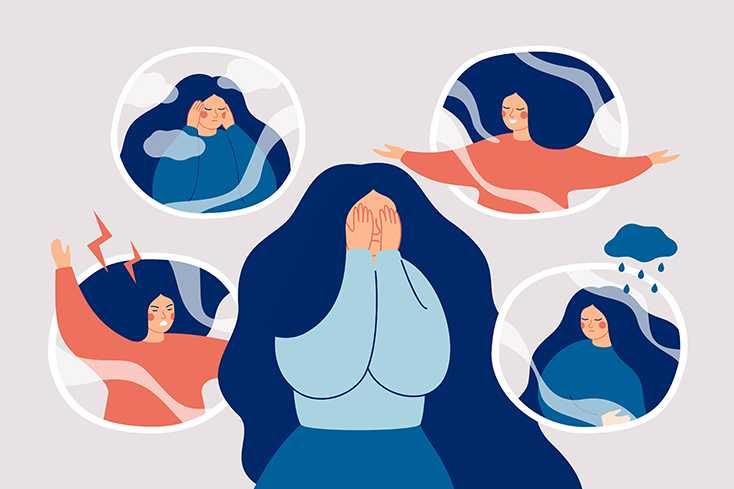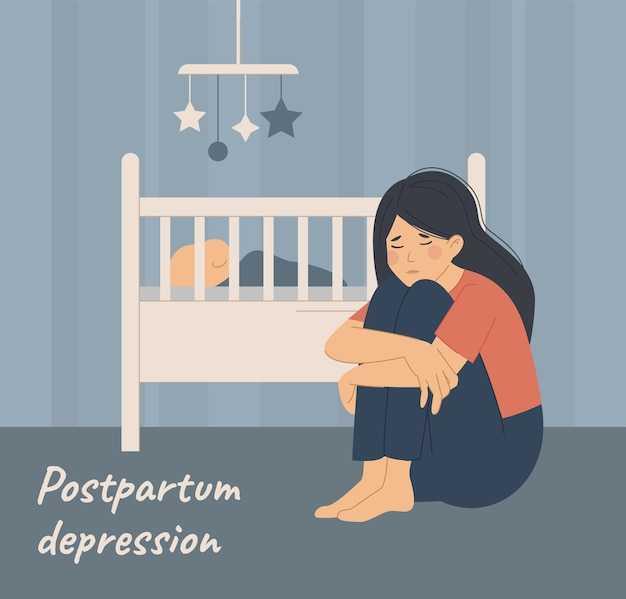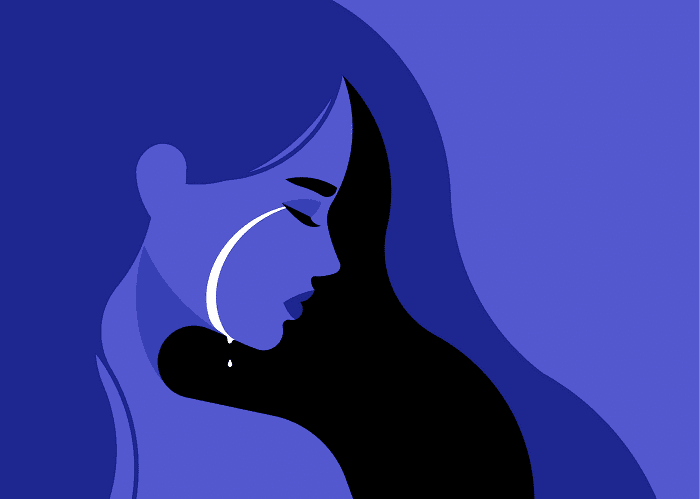Explore the World's Best Ideas
Join today and uncover 100+ curated journeys from 50+ topics. Unlock access to our mobile app with extensive features.
What is depression?
From a medical standpoint, depression is defined as a mood disorder that causes a persistent feeling of depressed mood or sadness and the often profound loss of interest in things that usually bring you pleasure.
Depression affects how you feel, think, and behave and can interfere with your ability to function and carry on with daily life. There are many different causes of depression, some of which we don't fully understand.
Seven of the more common types of depression include the following.
76
660 reads
Major depressive disorder (MMD)
When people use the term clinical depression they are generally referring to major depressive disorder (MDD).
Major depressive disorder is a mood disorder characterized by a number of key features:
- Depressed mood
- Lack of interest in activities normally enjoyed
- Changes in weight
- Changes in sleep
- Fatigue
- Feelings of worthlessness and guilt
- Difficulty concentrating
- Thoughts of death and suicide
77
478 reads
Seasonal affective disorder (SAD)
Seasonal affective disorder (SAD) is a mood disorder that is characterized by symptoms that occur at the same time each year, usually during the darker, shorter days of fall and winter.
Currently called major depressive disorder with seasonal pattern.
SAD is believed to be triggered by a disturbance in the normal circadian rhythm of the body.
Light entering through the eyes influences this rhythm, and any seasonal variation in night/day pattern can cause a disruption leading to depression.
69
380 reads
Atypical depression
Atypical depression is a type of depression that does not follow what was thought to be the "typical" presentation of the disorder.
In general, people with atypical depression experience similar symptoms as those with major depressive disorder (MDD) but with one crucial difference: mood reactivity.
In other words, a person's mood is able to improve if something positive happens.
Symptoms:
- Excessive eating or weight gain
- Excessive sleep
- Fatigue, weakness, and feeling "weighed down"
- Intense sensitivity to rejection
- Strongly reactive moods
82
536 reads
Persistent depressive disorder (PDD)
People might experience brief periods of not feeling depressed, but this relief of symptoms lasts for two months or less.
While the symptoms are not as severe as major depressive disorder, they are pervasive and long-lasting.
PDD symptoms include:
- Feelings of sadness
- Loss of interest and pleasure
- Anger and irritability
- Feelings of guilt
- Low self-esteem
- Difficulty falling or staying asleep
- Sleeping too much
- Feelings of hopelessness
- Fatigue and lack of energy
- Changes in appetite
- Trouble concentrating
79
384 reads
Bipolar disorder
Bipolar disorder is a mood disorder characterized by periods of abnormally elevated mood known as mania.
These periods can be mild (hypomania) or they can be extreme. The vast majority of those with bipolar disorder also have episodes of major depression.
In addition to depressed mood and markedly diminished interest in activities, people with depression often have a range of physical and emotional symptoms which may include:
- Fatigue, insomnia, and lethargy
- Unexplained aches, pains, and psychomotor agitation
- Hopelessness and loss of self-esteem
- Irritability and anxiety
- Indecision and disorganization
88
422 reads
Postpartum depression (PPD)
Postpartum depression (PPD) is clinical depression that occurs following childbirth.
Pregnancy can bring about significant hormonal shifts that can often affect a woman's moods.
PPD symptoms are more severe and longer-lasting.
Such symptoms can include:
- Low mood, feelings of sadness
- Severe mood swings
- Social withdrawal
- Trouble bonding with your baby
- Appetite changes
- Feeling helpless and hopeless
- Loss of interest in things you used to enjoy
- Feeling inadequate or worthless
- Anxiety and panic attacks
- Thoughts of hurting yourself or your baby
- Thoughts of suicide
70
221 reads
Premenstrual dysphoric disorder (PMDD)
Premenstrual dysphoric disorder (PMDD) produces similar symptoms, but those related to mood are more pronounced.
PMDD symptoms may include:
- Extreme fatigue
- Feeling sad, hopeless, or self-critical
- Severe feelings of stress or anxiety
- Mood swings, often with bouts of crying
- Irritability
- Inability to concentrate
- Food cravings or binging
69
303 reads
All depressions
So all together you have:
- Major depressive disorder (MMD)
- Seasonal affective disorder (SAD)
- Atypical depression
- Persistent depressive disorder (PDD)
- Bipolar disorder (BPD)
- Postpartum depression (PPD)
- Premenstrual dysphoric disorder (PMDD)
78
404 reads
IDEAS CURATED BY
I'm passionate about helping people live their best lives. I'm a lifestyle coach & burnout coach.
Rogier. H's ideas are part of this journey:
Learn more about health with this collection
How to prioritize self-care in the workplace
How to adapt to new work arrangements
How to maintain work-life balance
Related collections
Similar ideas
1 idea
Major Depressive Disorder (MDD) - The Human Condition
thehumancondition.com
5 ideas
14 ideas
What are the Holiday Blues?
verywellmind.com
Read & Learn
20x Faster
without
deepstash
with
deepstash
with
deepstash
Personalized microlearning
—
100+ Learning Journeys
—
Access to 200,000+ ideas
—
Access to the mobile app
—
Unlimited idea saving
—
—
Unlimited history
—
—
Unlimited listening to ideas
—
—
Downloading & offline access
—
—
Supercharge your mind with one idea per day
Enter your email and spend 1 minute every day to learn something new.
I agree to receive email updates
